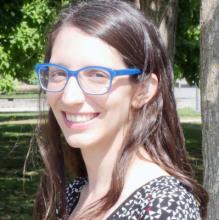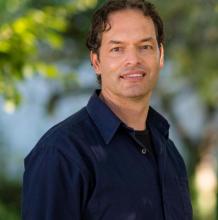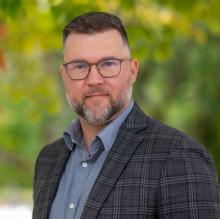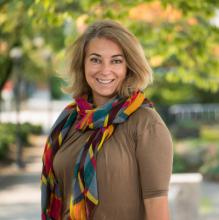Phoebe is working to create the first ever validated and standardized speech audiometry material in an Indigenous American language: Inuktitut, an official language of Nunavut. Inuktitut-speaking Inuit have a disproportionately high rates of hearing loss, the diagnosis and management of which depend on speech perception testing. Phoebe's work is meant to meet this vital need, and the clinical usage of the produced speech test will improve hearing health care for Inuit.
Research Description
The goal of this research is to develop standardized and validated material to test speech perception in Inuktitut. These materials will be used in hearing healthcare to help Inuit with hearing loss. Inuit experience disproportionately rates of hearing loss, which requires hearing testing to diagnose and manage. Speech perception testing, or speech audiometry, is a vital part of the hearing test and involves assessing the client’s accuracy in identifying spoken speech timuli, typically words. Test results help make diagnoses, guide treatment decisions, and predict clients’ daily conversational function. Testing materials must be standardized, validated, and in the clients' own language to be reliable and generalizable to real life. However, such materials do not exist in Inuktitut, even though Inuktitut is an official language of Nunavut, where most people learn it from birth and speak it at home. Validated and standardized speech audiometry stimuli in other languages were developed with the following criteria: equal difficulty across word lists (each used for a different testing condition); a representative sample of the language and equal distribution of its speech sounds; words familiar to most listeners; equal acoustic intensity across words; high test-retest reliability; and norms from listeners with normal hearing. These criteria will be used to create recorded speech audiometry word lists in Inuktitut. Inuktitut listeners will hear and be asked to repeat these words to validate the stimuli by establishing test-retest reliability and norms. Inuit will be continually consulted to ensure the research is done respectfully. This research will produce the first validated and standardized speech audiometry material in an Indigenous American language. Clinical usage will improve hearing health care for Inuit. This will aid Inuktitut language transmission, because speakers must be able to hear a language to teach it.
What does being a Public Scholar mean to you?
Public Scholarship means producing research yielding tangible benefits beyond academia.
In what ways do you think the PhD experience can be re-imagined with the Public Scholars Initiative?
The Public Scholars Initiative not only allows but encourages creative research outputs other than scholarly publications confined primarily to academic audiences. My project will produce materials directly applicable to and immediately usable in clinical audiology.
How do you envision connecting your PhD work with broader career possibilities?
My main goal is to improve my capacity to provide equitable hearing health care.
How does your research engage with the larger community and social partners?
As I'm qallunaaq I am aware of my duty to engage with Inuit rights-holders in my research. I will elicit feedback not only from representatives of official Inuit institutions but also the less frequently heard voices of individual Inuit not employed by these institutions.
Why did you decide to pursue a graduate degree?
As a Master's student in Audiology, I planned to do a thesis. However, I did not end up doing research for that degree, opting instead to graduate earlier. This timing was crucial to jumpstart my experience working as a clinical audiologist in northern Canada for the past five years. I needed that clinical experience to know what kind of research would be immediately beneficial to people with hearing loss. However, doing research and working as a clinician full-time is difficult. I am therefore choosing to focus the majority of my productivity on a doctoral degree at UBC.
Why did you choose to come to British Columbia and study at UBC?
The honest answer is that I just feel comfortable at UBC. I completed both my undergraduate and Master's degrees at UBC, during which time I studied under my two supervisors previously. Molly Babel was my supervisor for my undergraduate thesis, and since that time we had continued to chat about future research together. UBC is a great school with a beautiful campus and I feel most at home in Vancouver.
What is it specifically, that your program offers, that attracted you?
My supervisor Molly Babel and I had been discussing my proposed research about a year ago, long before I seriously considered doing a PhD. Instead of choosing the Interdisciplinary Studies Graduate Program and then finding a project to suit it, I came up with the project first and decided ISGP would be the best fit. It allows me to have supervisors from multiple departments and flexibility in chosen courses, comprising a program that I think will be truly customized for me.
For you, what was the best surprise about graduate life, about UBC or life in Vancouver?
As I attended UBC before and only moved away from Vancouver five years ago, there is not much unexpected. However, in the past five years, the city and the university have changed a lot. I have discovered some delicious new restaurants and am quite intrigued by the recently constructed Beach District with the chandelier hanging under Granville Bridge. On a less pleasant note, I wish rent had not increased so much, particularly as I need to readjust my finances for a student budget again. I am happy to see new buildings purposed for housing the homeless, however.
What aspect of your graduate program do you enjoy the most or are looking forward to with the greatest curiosity?
Primarily, I am eager to dedicate the next few years to learning and researching a topic that combines my passions.
What do you see as your biggest challenge(s) in your future career?
Insufficient government funding for public audiology services and hearing aids.
How do you feel your program is preparing you for those challenges?
While not directly related to future career challenges, I hope I will learn how to express myself more eloquently and convincingly through my graduate studies, in order to improve affordability, accountability, and accessibility in hearing health care.
What aspects of your life or career before now have best prepared you for your UBC graduate program?
I really think I needed the experience working as a clinical audiologist to know what research could actually be meaningful to clients and provide benefit on a short term basis. As well, since I have worked mostly in Northern Canada, I think that I have made a lot of connections to help with the cultural appropriateness of my research and to optimize the benefit my research will have for Inuit.
What do you like to do for fun or relaxation?
Swimming, cycling, reading (especially Russian literature), hiking, going to the beach, backcountry camping, cooking.
Do you have any tips for students from your home country coming to Canada / to UBC Grad School?
Be friendly to everyone so you can talk to diverse people and learn how your research can produce positive results beyond academia. Also, be better at saving money than me!




